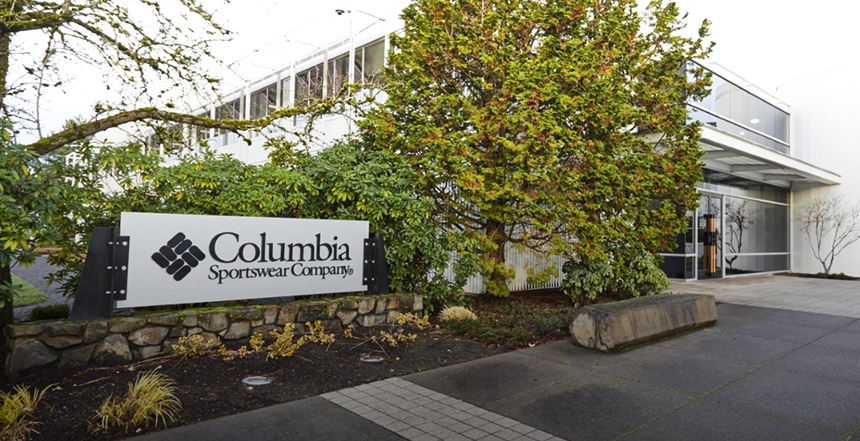Columbia Sportswear is a global outdoor brand crafting gear that reflects its passion for the natural beauty and heritage of the Pacific Northwest. Citing “positive change” as a corporate policy, Columbia looks for ways to benefit the people and places they reach with the products they make at every level. That includes implementing sustainability and cost-saving initiatives at their corporate headquarters in Portland.
Nine buildings make up Columbia’s headquarters, which are maintained by Corporate Facilities Supervisor Jeff Flaherty and team. Throughout his tenure, Flaherty has been working to upgrade the aging buildings and equipment.
“When things get old, they tend to break more,” he said. “There are more leaks and more downtime. The HVAC system is our biggest challenge right now.”
Earlier in his career, Flaherty attended the Building Operators Certification (BOC) I “Building Systems Maintenance” course. He said it offered a great introduction to key systems. “What I took out of it was a lot of HVAC-related knowledge,” he said. “It really helped me get my foot in the door understanding HVAC-related equipment and potential problems.”
He said it also taught him an important shared vocabulary amongst HVAC contractors and operators that continues to have real-world applications today.
“There’s a lot of vocabulary that you can learn that we might not use day-to-day on the job but is good to have because we deal a lot with our HVAC vendors,” Flaherty said. “To be able to understand what they’re talking about and be able to read through a quote or proposal and understand their terminology is really helpful.”
Hoping to learn new techniques to keep the HVAC and other systems running optimally, Flaherty is currently attending the (BOC) II course. The course is the second in the BOC series, which provides attendees with real-world, energy-saving techniques and equipment operations guidance.
Energy Trust of Oregon incentivizes the Building Operators Certification courses—a two-course series that trains facility managers and building operators on energy smart system maintenance. Energy Trust provides a $1,400 credit per participant per course (subject to location and building use characteristics) to help operators cover tuition. The total cost is about $1,900 a course.
“The incentive is a big driver for us,” Flaherty said. “A large portion of the cost can get reimbursed.”
Flaherty said the BOC II course goes deeper than the level one course on more energy-saving techniques—including commissioning and retro-commissioning opportunities.
“Retro-commissioning was something that I had never really heard about,” he said. “Engineers go back and review what’s currently in place to see how they can better optimize the way it’s running and its energy efficiency—just to be sure that the equipment is performing properly. I didn’t know that field was out there for companies to use.”
In addition to training its building operators through BOC coursework, Columbia has been an active participant in Energy Trust’s Commercial Strategic Energy Management (SEM) program since 2015. The SEM program provides businesses with the tools and education to immediately decrease energy costs and continue saving over time. Over the course of their involvement, Columbia has received about $73,400 in just operational and behavioral savings alone.
Flaherty is the backup energy champion for Columbia’s SEM program, serving as a subject matter expert on building operations.
“They look to me for a lot of the technical questions and answers that they might have for building systems, how things operate or what we’re currently doing,” he said. “Or if we need to write a [standard operating procedure] on something, they look to me for guidance on that.”
Flaherty already plans to pursue more incentivized educational opportunities through the SEM program and hopes to enroll members of his team in the nationally recognized BOC series. For one, the BOC coursework helps operators demonstrate expertise in a field that lacks other standardized certification. But according to Flaherty, the courses also provide less-tangible lessons for personal career growth. For example, the final assignment in his BOC II course was a Power Point presented over Microsoft Teams, which Flaherty says empowered him with new presentation and computer skills.
“Throughout my career, I was always pretty hands-on and didn’t do a lot of computer work,” he said.
He thinks the exercise will help in “higher-level positions” that often require presentations on big projects.
“It was good that I was able to get that experience and use it in real life. It was good to be able to learn that and get some practice and work out some of the butterflies.”

